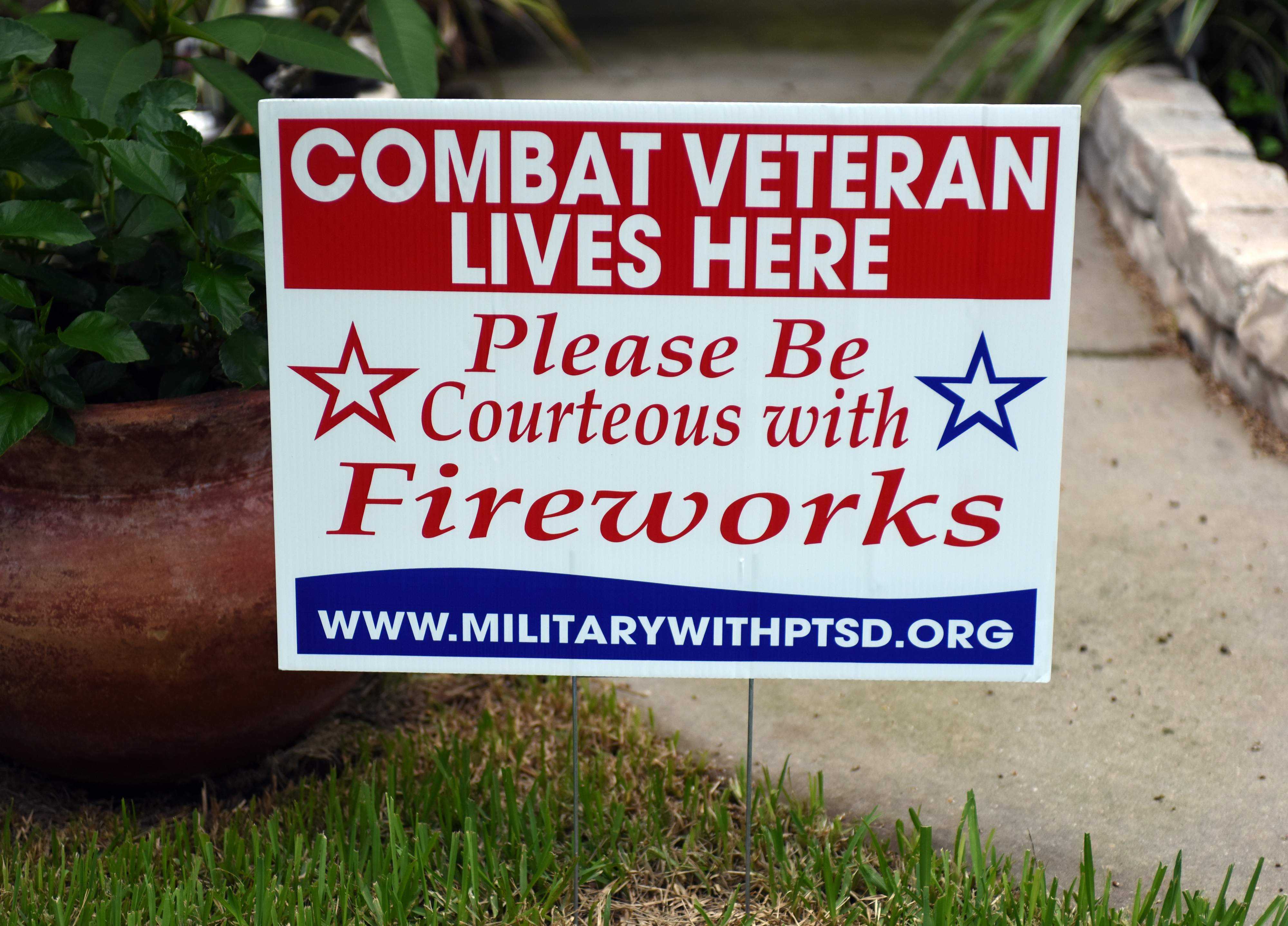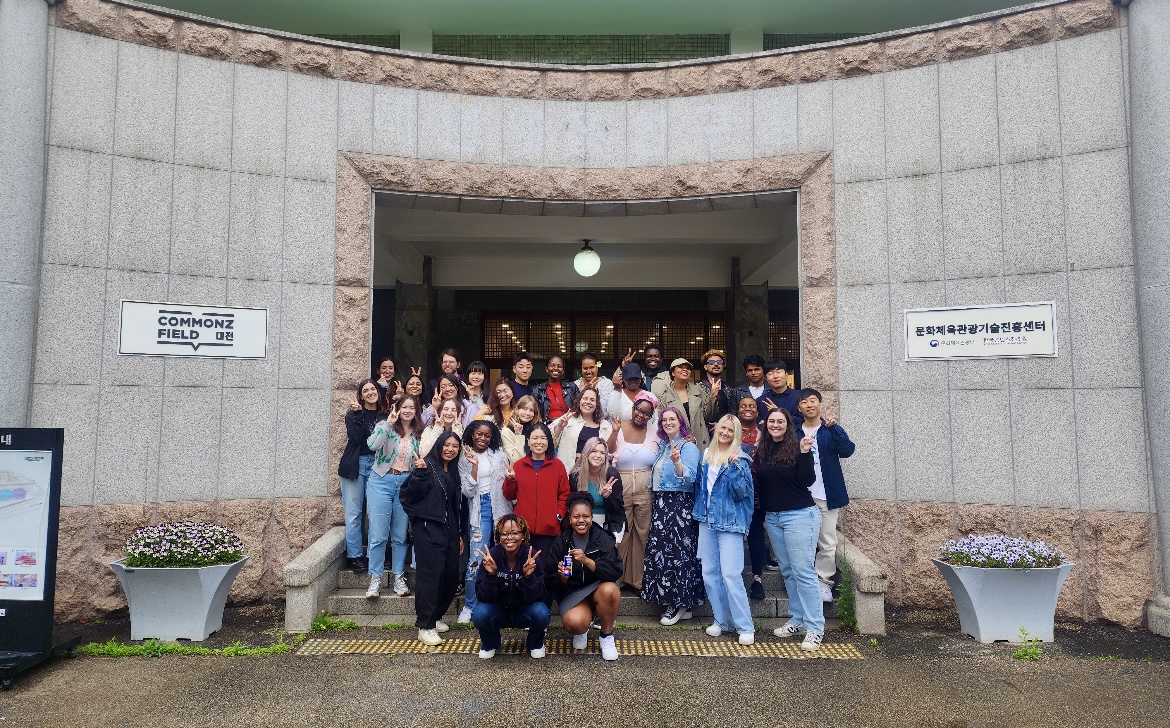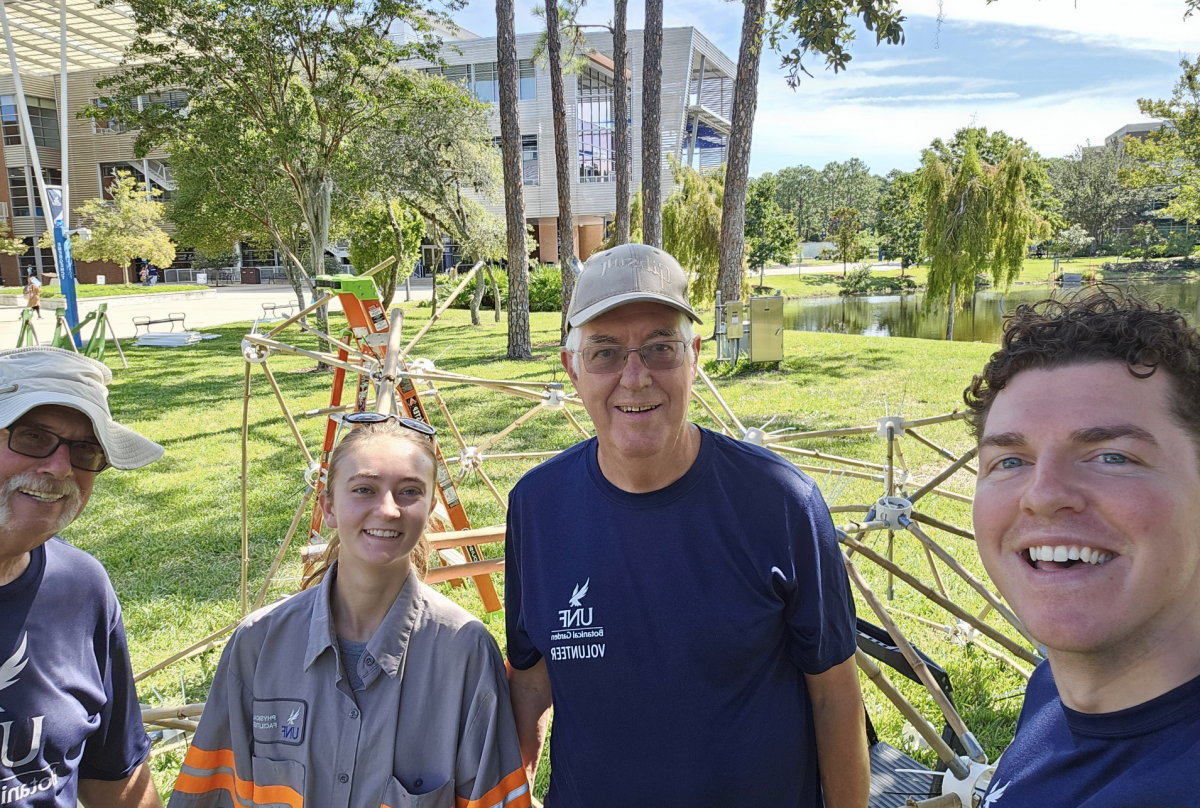Video by Tiffany Salameh and Brittany Moore
Fourth of July is approaching fast and you know what that means—fireworks! Every year Jacksonville is home to several ambitious firework shows, including ones located in downtown and at the beaches. The holiday is a time to acknowledge our country’s independence with thunderous celebration, but PTSD victims could have a tough time with these booming displays.
PTSD, or post-traumatic stress disorder, is a condition that can develop after a person has experienced or witnessed a traumatic event that resulted in serious physical harm or the threat of it. Symptoms of PTSD could be reliving the traumatic event, avoiding anything associated with the experience, jumpiness, and sleep deprivation.
There has been a trend this week of veterans posting photos of themselves with signs that remind their neighbors to be courteous while lighting their “chrysothamnus” and “flying fishes.” The Military With PTSD is offering veterans free yard signs that say, “Combat Veteran Lives Here. Please Be Courteous with Fireworks.”

For UNF student and Army veteran Arnet Brantley, fireworks do not necessarily disturb him, as long as he expects it.
“Some people with heavy PTSD just stay away from firework displays and don’t put themselves in that situation,” Brantley says. “It’s not the holiday fireworks that get to us, rather than someone randomly shooting off fireworks on a Tuesday in the middle of September.”
Brantley retired after serving for five years in the Army. During his service, his nine months as a paratrooper in Afghanistan led him to situations that developed a minor case of PTSD.
“There’s a constant state of readiness that you have to be in when you’re in combat arms,” he says.
Since then, he has been attending the university for a few years and has had time for his PTSD to “mellow out.” But he still often has trouble sleeping at night.
“Your mind races constantly when you’re trying to sleep. But as the years have progressed I’ve been able to sleep better but I still have night where memories pop up,” Brantley mentions.
But why would fireworks potentially bother a veteran with PTSD?
Well, according to UNF student and air force veteran Ryan Geddings, it boils down to triggers.
“For me, certain smells and sounds tend to invoke memories of the past,” Geddings says. During his 12 years of service as a military police officer and air force arms instructor, Geddings had five tours in Iraq and Afghanistan where he developed PTSD.
Even though it was an option for him, Geddings decided to not take medication and resorts to other coping strategies like avoidance and mindful meditations.
“Medication might not always be there but you’ll always be there for yourself,” he says.
Nonetheless, there’s definitely a silver lining for veterans who attend UNF. The university’s Military Veterans Resource Center not only provides services for student veterans but also a tight knit community.
Navy veteran and student Jaime Plym says that having the department provides a space for students to be around others who have undergone similar experiences.
“Just having our lounge and our center with other veterans is the biggest help of all. Just talking to another person who has gone through the same experiences is sometimes that best form of therapy,” she says.
When it comes to being courteous to veterans during your firework shows, simply reach out to the veteran with the sign and let him or her know when you plan to set off the ‘works.
Visit http://www.militarywithptsd.org/ to learn more on how to be a good neighbor to a veteran this Fourth of July.
—
For more information or news tips, or if you see an error in this story or have any compliments or concerns, contact editor@unfspinnaker.com.











